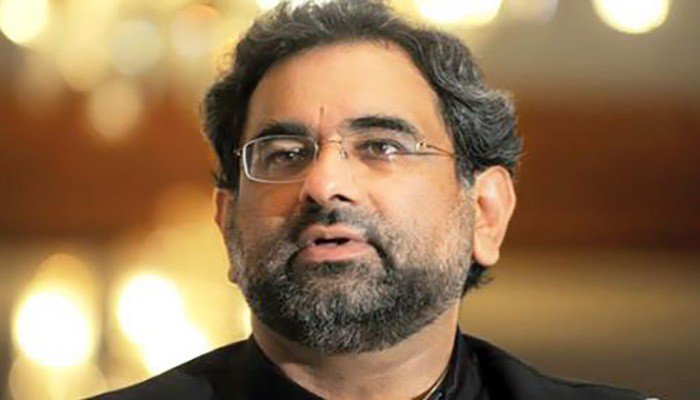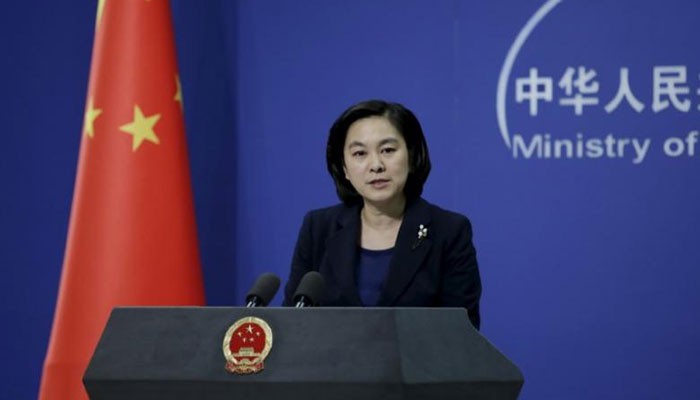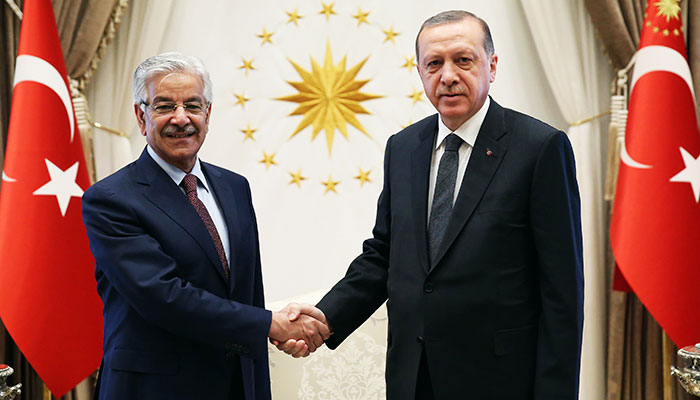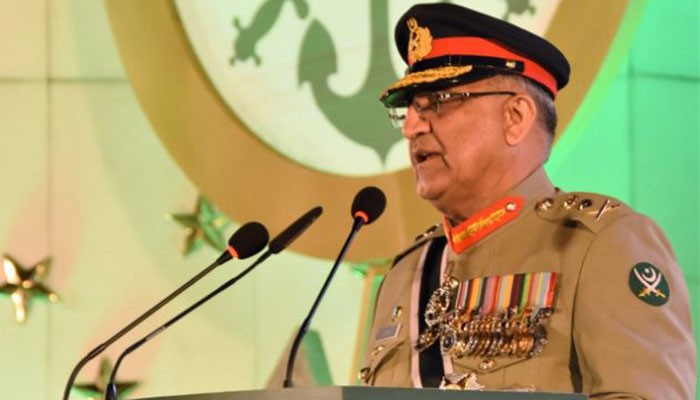PM Abbasi to address UNGA after Trump, BRICS statements
September 21, 2017

Prime Minister Shahid Khaqan Abbasi will address the 72nd session of the United Nations General Assembly on Thursday. His address will come mere weeks after the revised US policy was announced by President Donald Trump.
On August 22, Trump alleged that Pakistan, a frontline state and a key ally of Washington's in the 16-year long war on terror, was offering safe haven to "agents of chaos."
During the same address, Trump also cleared the way for the deployment of thousands more US troops to Afghanistan and also indicated that the single-minded approach would extend to US relations with troubled ally Pakistan, which consecutive US administrations have criticised for links with the Taliban and for harboring militants – like Osama bin Laden.
"We have been paying Pakistan billions and billions of dollars at the same time they are housing the very terrorists that we are fighting," said Trump.
After initial silence from government circles in Islamabad, Foreign Minister Khawaja Asif was the first to respond to Trump and his new policy for the region.
Asif shed light on the cost Pakistan has paid and said no one has invested more in the war against terrorism than Pakistan.
"Our contributions and sacrifices as an ally have not been acknowledged as they deserved to have been acknowledged," said the foreign minister and added that Pakistan's commitment towards the war on terror were "unmatched".
Following Trump's scathing criticism of Pakistan, the country's long-term ally, China, defended Pakistan's struggle against terrorism and said the country had made "great sacrifices" and "important contributions" in the fight.

"We believe that the international community should fully recognise Pakistan´s anti-terrorism," said the Chinese Foreign Ministry's spokeswoman.
Pakistan then proceeded to display its displeasure at Trump's remarks and postponed a visit by US acting Assistant Secretary of State Alice Wells.
On August 24, in a meeting of the National Security Committee, the government strongly rejected certain allegations levelled against the country.
A statement released also said that Pakistan has an interest in Afghanistan’s peace and stability and the country has dealt with the Afghan refugee problem after the withdrawal of Russia.
US Ambassador David Hale then said the US President Donald Trump did not blame Pakistan for failure in Afghanistan.
The US envoy also acknowledged Pakistan’s sacrifices in the war on terror and hoped that the country would continue to play a cooperative role.
During the latest BRICS summit held in China, the member countries also strongly condemn terrorist attacks resulting in death to innocent Afghan nationals.
"We, in this regard, express concern on the security situation in the region and violence caused by the Taliban, ISIL/DAISH, Al Qaida and its affiliates including Eastern Turkistan Islamic Movement, Islamic Movement of Uzbekistan, the Haqqani network, Lashkar-e-Taiba, Jaish-e-Mohammed, TTP and Hizb ut-Tahrir," said the declaration issued by BRICS.
"We deplore all terrorist attacks worldwide, including attacks in BRICS countries, and condemn terrorism in all its forms and manifestations wherever committed and by whomsoever and stress that there can be no justification whatsoever for any act of terrorism. We reaffirm that those responsible for committing, organizing, or supporting terrorist acts must be held accountable," said the statement further.
The BRICS statement came as shock for Pakistan and followed closely behind President Trump's scathing remarks against the country.
The Foreign Office (FO), in its reply, said Pakistan is seriously concerned about the threat posed by terrorism and extremism in the South Asian region.
Many terrorist groups based in the region, including in Afghanistan, such as the TTP [Tehreek-e-Taliban Pakistan] and its associates like JuA [Jamaat-ul-Ahrar] have been responsible for extreme acts of violence against Pakistani people,” the FO said.
The defence minister, Khurram Dastgir, had also gone on record to say the Pakistan had no ‘safe haven’ for terrorists on its soil, as he rejected the declaration naming terrorist groups in the region by leaders of member countries at the BRICS Summit.
Perhaps the strongest reply came from Chief of Army Staff General Qamar Javed Bajwa, who said that Pakistan has done enough in the war on terror and now it is time for the world to do more.
"If Pakistan has not done enough in the war against terror, then no country in the world has done enough," the army chief had said while addressing the participants at the event commemorating Defence Day.
Bajwa had also added that the armed forces of Pakistan have paid with their blood during numerous military operations.
"Only Pakistan has seen this level of success with such limited resources. From Operation Sher Dil, to Rah-e-Rast, Rah-e-Nijat, Zarb-e-Azab and now Raddul Fasaad, we have paid for each inch with our blood."
After the BRICS statement and with Trump's allegations against Pakistan regarding harbouring "agents of chaos", the foreign minister embarked on a whirlwind to nations friendly to Pakistan.
Asif had said that the United States has been conveyed that it should change its approach in the region, as it has been fighting for 16 years in Afghanistan without any favourable outcome.
During Asif's visit to China, the Chinese government reaffirmed its continuing and firm support for Pakistan in the war against terrorism, saying both the countries are steady anchors for peace in the region.
The Chinese foreign minister asserted that China respects Pakistan's interests, and said there is a need to acknowledge Pakistan's efforts in countering terrorism.
"Pakistan is an important participant in the fight against global terrorism," he said, pointing out that Pakistan has given many sacrifices in the war on terror.

After China, the foreign minister visited Iran and met President Rouhani and other Iranian officials. He said after the visit that there was harmony on the Afghan issue there too, were concerns over the new US policy for South Asia.
Last stop on the foreign minister's list was Turkey, where Asif met Turkish President Recep Tayyip Erdogan and Prime Minister Binali Yildirim.
The frantic diplomatic activity initiated by Pakistan will carry on to the 72nd United Nations General Assembly.













